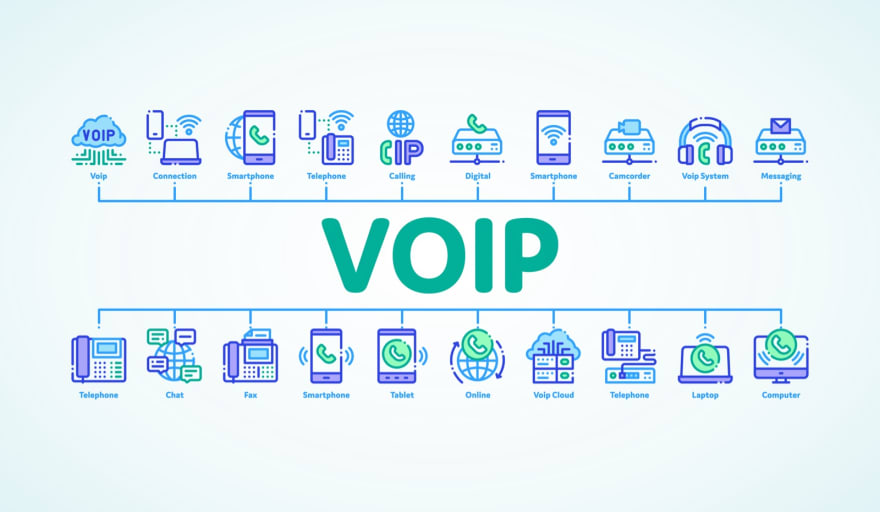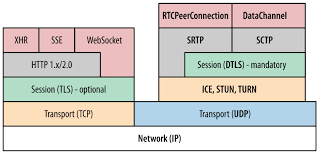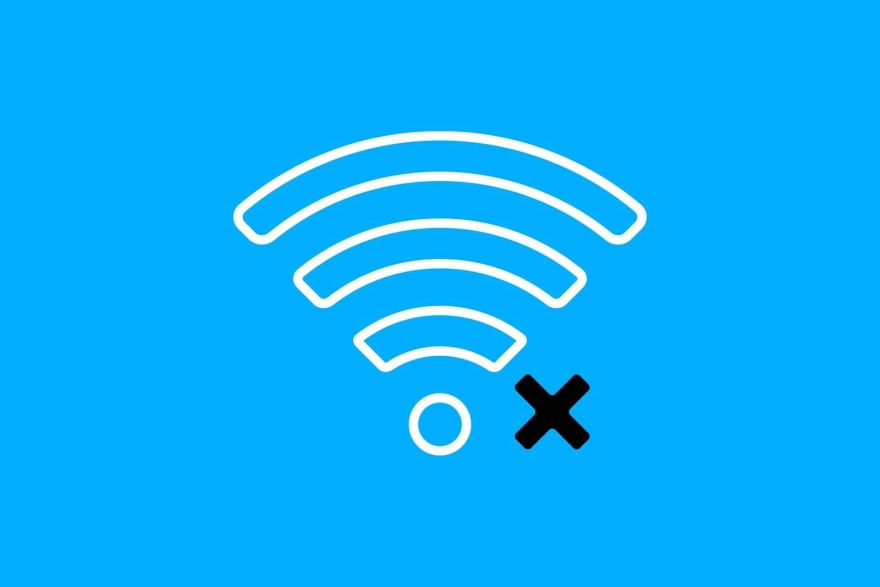You've probably heard of the term Voice over Internet Protocol (VoIP) systems, and how they differ from traditional landlines.
But if you're unsure, VoIP systems basically refer to technologies that allow voice and video communication via internet connection.
But here is where it gets complicated, it turns out that there are VoIP and Non VoIP phone numbers, I will try to explain this as best as possible as it is a bit confusing at the beginning.
VoIP and Non VoIP belong to one category: Virtual Numbers, and they both have the same technology have in common.
But first of all. What are virtual phone numbers? They are those that allow people to communicate through the internet, and using this valuable tool you can communicate with any number in the world and still be as cheap as calling from a conventional phone number (this is one of the main advantages of virtual phone numbers). Another advantage is that they are not tied to any physical location (sometimes they are), this means that they protect your privacy very well, however Non VoIP numbers have a greater advantage over VoIP.
Now, Non VoIP phone numbers belong to the group of VoIP numbers but are not limited to any geographical location, and are not tied to any equipment, which means, calls can be made through computers, phones, tablets and everything you can think of.
But how do they work? In the same way as VoIP phone numbers, however if you receive a call or text message, any device that is linked to that phone number will ring and the recipient can use any of the devices to answer the message/call. This is a big plus.
One of the clearest benefits is that we can affiliate our entire technical support team to multiple devices and they can all receive the information and respond to it in a much more efficient manner.
However, VoIP numbers have a disadvantage here: 1 VoIP number = 1 purpose.
How are they configured?
Well, actually the configuration is very similar to VoIP numbers (Using SIP). In the case of companies like Twillio, you simply buy the phone number and use the language of your choice to connect their API to your development.
What Is SIP?
The Session Initiation Protocol (SIP) is one underlying technology that makes VoIP possible. This is a text-based protocol similar to HTML. It's the most commonly used standard for setting up and controlling phone calls in most VoIP systems. You'll run across references to SIP in almost anything you do with these kinds of phone systems, especially when you're selecting any handset hardware you want to use.
What makes SIP so popular is not only that it's deep and flexible, but also because it was purpose-built to engage in multimedia (meaning not just audio but also video and even text) communications over TCP/IP networks. For VoIP and Non-VoIP calls, SIP can set up calls using a number of IP-related protocols, including the Stream Control Transmission Protocol (SCTP), the Transmission Control Protocol (TCP), and the User Datagram Protocol (UDP), among others.
But it's not all pretty. There is a big problem with Non VoIP numbers.
The main one is that many people take advantage of this type of technology to perform Spam and this is really a problem because spam filters can identify and erroneously block incoming calls from companies that use non fixed VoIP phone numbers.
Another problem to consider is the following: Since Non-VoIP numbers are not tied to a physical location then in case of an emergency of any kind, these agencies will not be able to track your location.
However, depending on the project you are developing this can be a strong point, since if you use a proxy or residential vpn then you will have almost absolute anonymity. Of course it also depends on other factors such as DNS, or the WEBRTC protocol.
Another point against is that most of the Non-VoIP phone number providers do not have API to automate their services, compared to companies like Twillio, Vonage, Nextiva among others.
But the Achilles heel of VoIP and Non VoIP technologies in developing countries is the Internet.
Most VoIP solutions will require stable and consistent internet connectivity at all your office locations. At the very least, your business phone system must have access to a business-class internet link, so discuss these needs with your company's internet service provider (ISP). This should be a dedicated link through a dedicated router if you expect your phone calls to sound as if they were coming from a business and not someone's home Skype connection. At a minimum, it's important to have a router that can create virtual LANs (VLANs) and also has the ability to encrypt your voice traffic. These days, you need end-to-end VoIP security for any call.
For larger systems, and for systems where security is critical for things like being compliant to vertical regulatory needs, your current internet connection might not be adequate. The internet doesn't do quality of service (QoS), and bandwidth can be unpredictable. Network congestion can ruin a conference call, and activities such as DNS hijacking can put your business and data at risk.
Well, in general you have an idea of the advantages and disadvantages of Non VoIP vs VoIP numbers
See you in a future Post! Possibly about R Studio vs Matlab!





Latest comments (10)
Thank you for a very comprehensive comparison. Actually, I had also been thinking for quite a long time whether I needed VoIP or not. But if you have many people answering phone calls myvelox.com can save you plenty of cash, in fact. Just imagine if you have to pay the tariffs of the regular phone provider. It will be way too expensive.
Great Article keep more posting
Here's the gist in a human friendly wayThink of all virtual numbers as using the internet for calls, kind of like how a VoIP(rozper.com/wholesale-voip/) system works in general. The cool thing about all virtual numbers is that they're not tied to a specific physical phone line, which can save you money and let you connect globally. Now, the "Non-VoIP" type is a bit of a special breed within this virtual number family. It's super flexible because it's not even tied to a specific device. So, if someone calls your Non-VoIP number, it can ring on your computer, your phone, your tablet basically anything you've linked up. This is a big plus for teams because everyone can get the call and respond faster.
This was a great breakdown of VoIP vs Non-VoIP! It’s true that at first, the differences between them can be confusing, but you explained it in a really clear way.
One thing that stands out to me is how Non-VoIP numbers give more flexibility, especially for using multiple devices. But at the same time, the lack of API support and the risk of being flagged as spam make them a bit unreliable for businesses that need long-term stability.
For businesses, I’d say VoIP is still the better option—especially for things like wholesale VoIP, where reliability, call quality, and compliance really matter. A strong internet connection is a must, though. Nothing worse than dropping calls in the middle of an important conversation!
Great article, I like it because it provides a clear perspective on the differences between VoIP and Non-VoIP numbers, as well as their advantages and disadvantages.
It is interesting to note how VoIP technology has revolutionized communication, allowing flexibility and efficiency in the way we connect. Another thing I like is that the article mentions how virtual phone numbers can be a cost-effective and versatile solution for businesses and individuals. As a contribution, if you are considering using virtual numbers for your business or personal needs, I would recommend exploring the VoIPStudio or Zadarma service, as they are two very cheap services.
Thanks for sharing this insightful overview of VoIP vs. Non-VoIP phone numbers. It can indeed be a bit confusing at first, but your explanation helps clarify things.
I've recently been exploring different types of phone numbers, including toll-free numbers in Canada. If you're interested in expanding your knowledge, you might find this blog useful: mightycall.com/blog/get-toll-free-.... They cover various aspects of phone numbers and their applications, which can be handy for both personal and business purposes.
It's always great to learn more about these technologies, especially with the ever-evolving communication landscape.
Great write. Keep good things coming out.
Thanks for share! It is always good to know new things.
You're welcome! It's a pleasure to share content with the community!
Hello! This post is just amazing!!! I had heard of Non VoIP technology before but never really used it since I only work with VoIP. I'm safe to say that virtual communications are taking over the world! This is such a good article, it's definitely worth to implement Non VoIP, I think it could be the solution to a lot of problems I am currently facing, thanks a lot!
Some comments may only be visible to logged-in visitors. Sign in to view all comments.